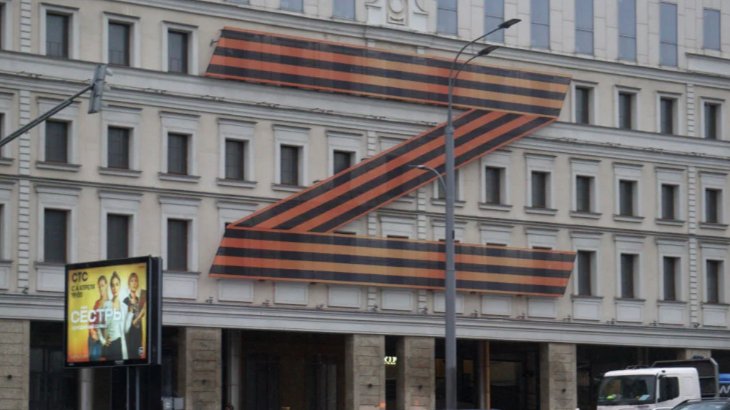On 30 June, Moscow’s Department of Culture announced a change in artistic directors at several famous theatres of the Russian capital: the Gogol Centre, the Sovremennik Theatre and the School of Modern Drama. However, these theatres were not the only ones affected by the war. Novaya Gazeta. Europe spoke to actors, critics and theatre employees about what is going on with the Russian theatre scene today and whether art can be free in the conditions similar to a military dictatorship.
‘The Meyerhold Centre used to be here’
Elena Kovalskaya, the director of the Meyerhold Centre, left the theatre on 24 February. “As a sign of protest against the Russian invasion of Ukraine, I am resigning as director of a state theatre, the Meyerhold Centre. It is impossible to work for a murderer who pays your salary,” she wrote on her Facebook page. Kovalskaya promised to finish all pending projects pro bono.
In the first few days following the war, the Meyerhold Centre issued official statements condemning the war in Ukraine. Former marketing manager of the Meyerhold Centre Sofa Kruglikova says that they were warned by the Moscow Department of Culture that their social media was being monitored. The officials urged them not to comment on the situation in any way. Following the publication of anti-war statements, the Department of Culture contacted the theatre’s artistic director Dmitry Volkostrelov demanding that the posts be removed, however, he refused to do that. A week later, on 1 March, Volkostrelov was fired with no explanation provided. “At first, they offered him to resign to avoid falling out of favour with the Moscow officials. He told them that he does not understand why he should resign of his own accord,” Kruglikova said. “Then they told him: ‘Alright, then we will fire you for cause.’ They had two binders prepared for that.”
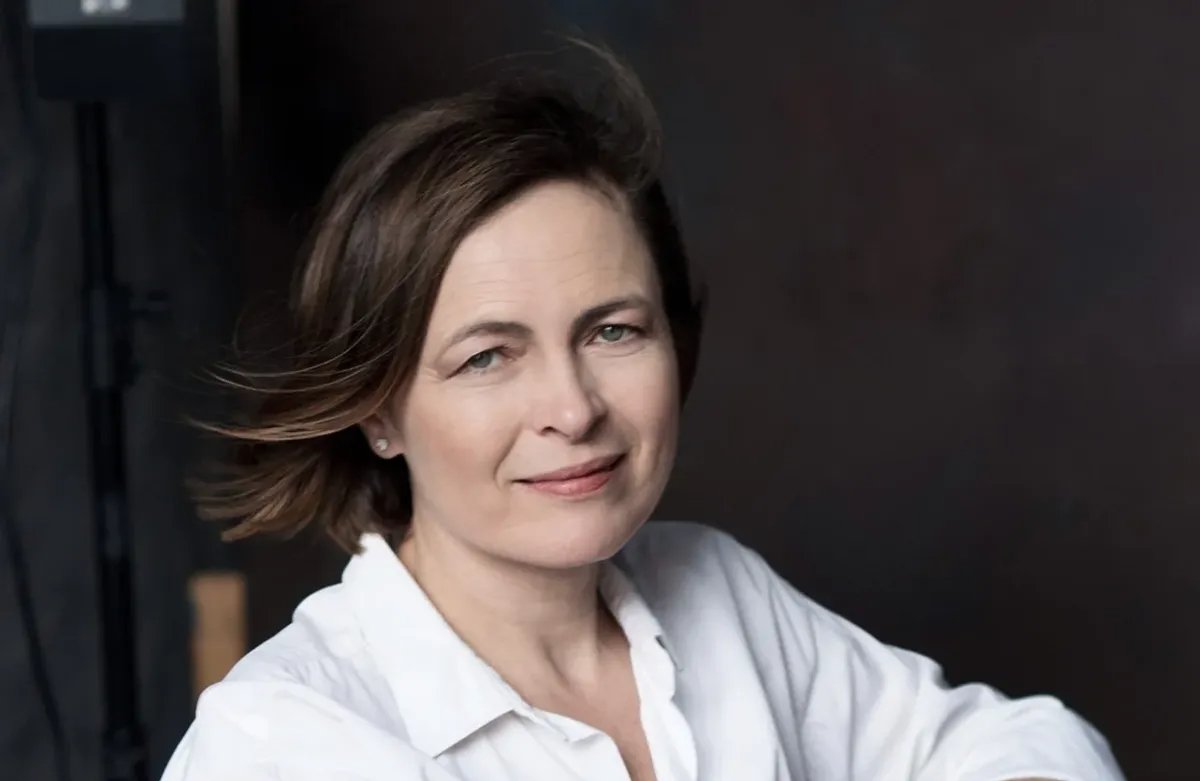
Former director of the Meyerhold Centre Elena Kovalskaya. Photo: Facebook/elena.kovalskaya
According to Kruglikova, the entire team expected that they would be assigned new management. “We came to the general meeting realising that we had essentially been decapitated. The management [Kovalskaya and Volkostrelov] asked us to stick together, not to abandon anything, not to follow their example and leave. We needed to finish our projects,” she recalls. After the meeting, when the employees left home, they got the news that the Meyerhold Centre would be merged with the School of Modern Drama. “No one from the theatre got prior notice of that, neither the deputy director nor the secretary. That is, they didn’t think it was necessary to inform us at all. I later found out that they had called the employees of the School of Modern Drama.
When we came to the meeting with our new management, it was clear to us that that was it, there were no semitones at that point,” the former manager of the Meyerhold Centre says.
The majority of the theatre’s team decided to resign after they finished all pending projects and staged the plays that were already in the repertoire. “I am asking to resign on my own accord, because there is no Meyerhold Centre anymore. The Meyerhold Centre isn’t a building, it’s the people that chose to work hard every day to make it what it was. It only worked because each one of us chose to do it together every day. Neither of us chose the School of Modern Drama,” Kruglikova said in her resignation letter.
Marketing director Oleg Sokolov, PR manager Valeriya Golubeva, the production department, administrators and the contract department of the theatre all followed suit and resigned. The Meyerhold Centre did not legally own its social media pages, so the former employees retained control of all of them except the verified VK page that the new management seized for themselves. “We are all banned on that page now, because we wrote comments saying that they are lying to the audience when they say that we allegedly agreed to negotiate and found some common ground. We renamed our Facebook and Instagram pages ‘The Meyerhold Centre used to be here’. We still have access to them. There, we continue to talk about the things we find important: foundations and our colleagues from independent theatres that we have always supported,” Kruglikova says.
After the start of the war, Elena Tupyseva resigned as head of Ballet Moscow and moved to Canada. According to Tupyseva, theatre directors only find out if the Moscow Department of Culture prolongs their contracts shortly before they expire. “I decided that it would be easier for me as a professional to move to another country and refuse to prolong my contract. My resignation isn’t a 100% sign of protest, but I definitely made this decision as a consequence of the war,” she says. “I don’t want to work in the government sector anymore in this situation. If I stayed in Russia, I probably would not have continued to work in a theatre.” After Tupyseva resigned and left Russia, Ballet Moscow was merged with the New Opera Theatre, while New Ballet joined the Stanislavski and Nemirovich-Danchenko Theatre.
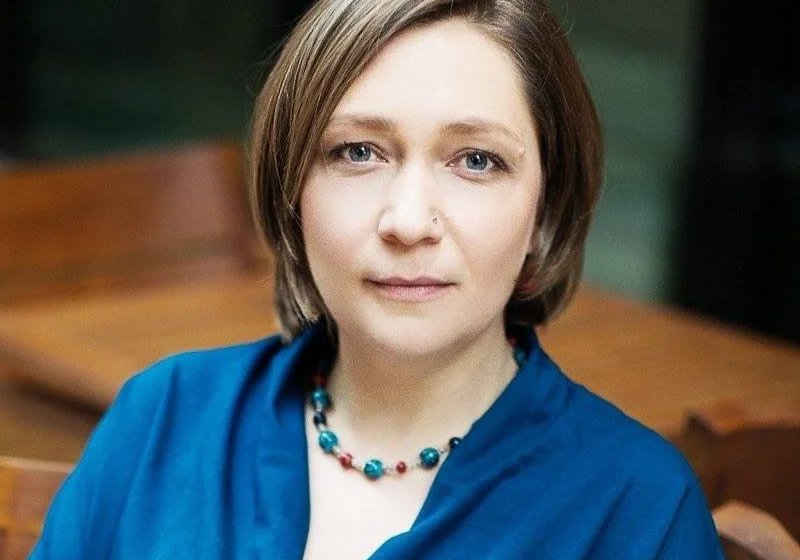
Former head of Ballet Moscow Elena Tupyseva. Photo: Facebook/elena.tupyseva.7
This news did not come as a surprise to Tupyseva: she says that there have been rumours about it for a while. “Even before the war, there were rumours that the mayor’s office wants to reduce the number of theatres by 30%. Then, MOST Theatre merged with Mossovet Theatre, and ApARTe joined the Taganka Theatre. There were rumours that Ballet Moscow could merge with another theatre too, but no one told me that openly in advance. The Department of Culture did not answer my direct question on whether our theatre would join another one,” she stated.
Ballet Moscow was less politically oriented than the Gogol Centre, as it did not stage plays, Tupyseva points out. “We were never told what to put on, although we are financed by the state.
But there are people that still have an opinion on the actions of our government and make it known despite the fact that they work in a government sector.
At least in Moscow, they are trying to get rid of such people right now and to remove them from key positions in the field of culture,” she notes.
Elena Tupyseva says that she trusts Anton Getman, the head of the New Opera Theatre. “I don’t see this merging as a seizure of the theatre. I am on very good terms with the new director. Negotiations on the project’s future are still ongoing, so there isn’t a wave of resignations. Maybe someone from the administration will leave, while the creative department — the actors and teachers — will stay on,” she thinks.
An attempt at freedom
Actor, director and producer Alexey Agranovich, a member of Kirill Serebrennikov’s team, was appointed artistic director of the Gogol Centre in February 2021. After the start of the war, Agranovich signed an open letter by Russian artists condemning the Russian invasion (it has since been deleted — editor’s note). The theatre made several anti-war statements: the actors refused to take bows after shows, the theatre changed its social media profile pictures to the dove of peace. The same picture appeared on the stage of the Gogol Centre.
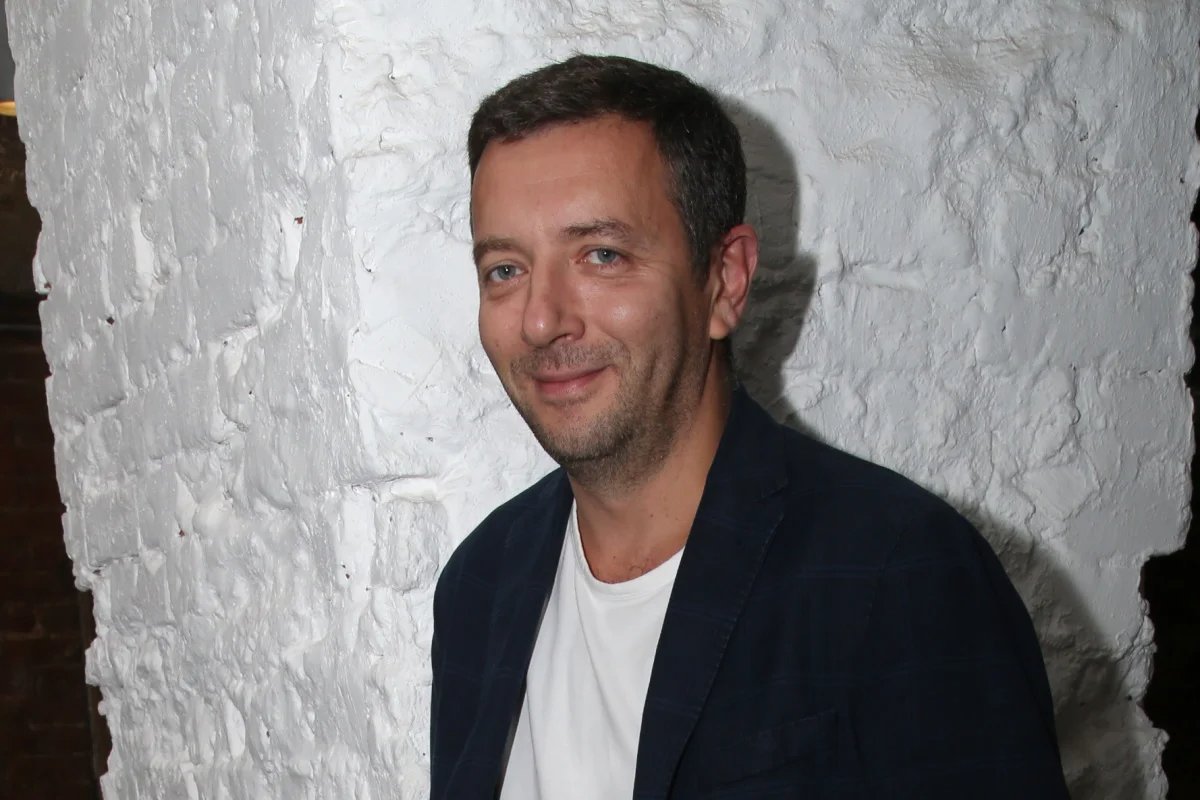
Former artistic director of the Gogol Centre Alexey Agranovich. Photo: oteatre.info
On the evening of 29 June, the Moscow Department of Culture appointed the new artistic director of the Gogol Centre instead of Agranovich, Anton Yakovlev. Yakovlev has no previous ties to Serebrennikov’s team. The theatre director was also replaced, after which Agranovich and Serebrennikov announced that the Gogol Centre would be shut down. They did not specify whether it meant that the theatre’s team would be disbanded, too. On the same June evening, Viktor Ryzhakov, the artistic director of the Sovremennik Theatre, was fired. Ryzhakov was appointed artistic director in 2020, after the death of Galina Volchek. Only one actor from the Sovremennik team agreed to talk to Novaya Gazeta. Europe, however, he later retracted his comment after consulting with the theatre’s press service.
“These are very serious changes that will affect the team a lot. However, the Gogol Centre unites many people of different professions. I don’t know what each one of them plans to do. Naturally, I will resign,” Maksim Chuklinov, the producer of the theatre’s YouTube channel, says. According to him, it is still unclear what will happen to the theatre: no one discussed it with the team. Actor Filipp Avdeev confirmed his words. What will happen with the repertoire of the Gogol Centre is also unknown. “I don’t know the legal details related to copyright and who owns the plays, but the author and founder of the Gogol Centre announced that it would shut down. Meanwhile, director Alexey Kabeshev said that no plays would remain in the repertoire,” Chuklinov points out.
The decision of the Department of Culture not to prolong the contracts of the theatre’s management did not come as a surprise to Chuklinov, however, he still took the news very hard. “I love this theatre, I worked there for a long time, I learned everything there. As Kirill Serebrennikov put it, it was ‘an attempt at freedom’. To my mind, it was a successful one. Besides the team, there is an audience that genuinely loved coming to our shows. Gogol Centre was a part of their lifestyle. One man from Yaroslavl came to each premiere year after year. He attended almost every event, concert or exhibition. We ended up becoming friends and even invited him to our team’s celebrations. And now he lost this part of his life. And he is not the only one. But everyone’s life is changing now,” he says.
The new artistic director of the Gogol Centre Anton Yakovlev ignored Novaya Gazeta. Europe’s request for comment.
A wave of resignations began in other Russian theatres after the start of the war. Theatre critic Alexey Kiselev suggests that the resignations are tied to the open anti-war stance of the theatres’ management.
Among those who resigned after 24 February are: artistic director of the Roman Viktyuk Theatre Denis Azarov, the management team of the Meyerhold Centre, artistic director of the Bestuzhev Theatre in Ulan-Ude Sergey Levitsky, artistic director of the Mayakovsky Theatre Mindaugas Karbauskis and artistic director of the Vakhtangov Theatre Rimas Tuminas.
Alexey Kiselev points out that although the pressure on the theatre scene increased after the start of the war, it had begun long before that. “I think it all started a long time ago, even before 2014. It started with all sorts of bureaucratic stuff,” he notes. “Back then, theatre director and founder of the School of Drama Art Theatre Anatoly Vasiliev demonstratively left the country after butting heads with the head of the theatre. It was the first red flag pointing to the fact that there won’t be a rise of the director-oriented theatre: and even if there was one, the theatres would encounter problems [because of that].”
After that, the Russian law enforcement and the public movements supported by the government started to persecute the independent Theatre.doc, founded by Elena Gremina and Mikhail Ugarov. The theatre was fined for alleged violations of fire safety regulations, its lessors received numerous threats. The theatre was forced to switch its location several times; its team was interrogated by the police, and the performances were often derailed. “All this led to the death of the theatre founders and directors: they died from heart-related conditions, possibly due to stress. Theatre.doc was under pressure because they said what they wanted,” Kiselev says.
After the annexation of Crimea, most of the Ukrainian actors employed in Russia returned to their home country. Many of them stopped all cooperation with Russian theatres. Besides, provocateurs of all kinds constantly derailed plays at the Sakharov Centre. “So, there were many things leading up to what is happening right now. Although there was a time when the state even supported artists and the free theatre. It seemed strange back then, but we were glad it was that way. And now it’s clear to us that what happened then was totally inconsistent with the way our government operates,” he sighs.
Many theatres choose to turn a blind eye to the persecution of their colleagues, actively supporting the Russian invasion of Ukraine. Some of them even go as far as to hang a Z-banner symbolising the Russian invasion on the façade. However, many actors are not fine with that. Kiselev points out that after Vladimir Mashkov, the artistic director of the Oleg Tabakov Theatre, chose to hang a giant Z-banner in the colours of the ribbon of Saint George (a Russian military symbol consisting of a black and orange pattern — translator’s note) on the theatre’s façade, many actors tendered their resignation.
Many playwrights who put on plays at Russian theatres were also faced with pressure from the government. Theatres started to remove plays by Ivan Vyrypaev and Mikhail Durnenkov from their repertoire due to the playwrights’ anti-war stance.
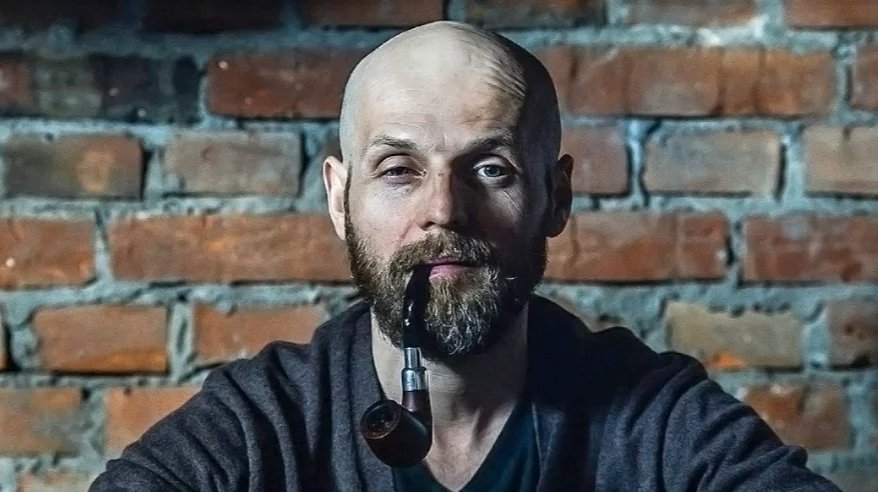
Playwright Ivan Vyrypayev. Photo: kino-teatr.ru
Theatres began to cancel performances based on Vyrypaev’s plays in the first weeks after the war, although they formally remained in their repertoire. On 8 March, the Russian playwright published a letter addressed to Russian state theatres that were staging his plays. In the letter, he said that he would transfer the royalties received from ticket sales “to the relief funds for Ukraine”. He emphasised that the money would go only for peaceful purposes.
Shortly after that, a number of Vyrypaev plays, including Line of the Sun, Disquiet and Iranian Conference, were taken off the repertoire of Russian theatres.
Alexey Kiselev points out that due to the authors’ anti-war stance, the premiere of the play by Yuliya Aug and Nikita Betekhtin at the Stanislavsky Electrotheatre was cancelled. Sofa Kruglikova thinks that this happened after Betekhtin posted a list of theatres that hung Z-banners on their facades. “After that, his plays were gradually taken off. The Meyerhold Centre also put on one of his plays, Rozhdestvo, and our director [Elena Kovalskaya] told us to remove the play’s page from our website, as if it was never there,” she says.
Head of the Union of Theatrical Figures of Russia Alexander Kalyagin condemned playwright Mikhail Durnenkov and demanded that he be excluded from the union. After Kalyagin’s statement, many theatre teams boycotted the union and its platforms. For example, Zhenya Berkovich stopped cooperation with the Boyarskiye Palaty platform, Kiselev says.
Besides, many theatre critics openly condemn the theatres that expressed support for the “special operation”. “As a theatre critic, I told them I would not be visiting these theatres, discuss their plays or give public talks there. I asked them not to invite me, because I would refuse anyway. Many theatre critics are doing the same, it looks like a collective boycott,” Alexey Kiselev notes.
‘Honest and reflexive Russian theatre ended on 24 February’
The majority of theatre artists that Novaya Gazeta. Europe spoke with are united in the opinion that free theatre has become an impossible and dangerous venture in Russia. “To me, honest and reflexive Russian theatre ended on 24 February. Now, the evil surrounding us has become so unbearable that it is impossible to adjust to it or live by its rules. This is why I think that what happened with the Meyerhold Centre is a logical conclusion to this incandescence. The theatre community is very small, everyone knows each other. And of course, they immediately started to ‘cancel’ those who rather loudly spoke up against the ‘special operation’,” Sofa Kruglikova notes.
She thinks that major platforms like the Gogol Centre and Sovremennik that lost their directors tried to speak up carefully about the war, but it did not help. “I feel bad for my colleagues, but still, they spoke rather carefully: they signed a letter against the ‘special operation’, the Gogol Centre put the peace dove as their profile picture, actors refused to take bows after the plays, Alexey Agranovich wrote something on his social media, and yet it did not save the theatres,” she says. “Everyone used to think that silence is a shield that helps us do our jobs. We often heard that it is important to continue staging plays. But now, there are no more measures of silence: either you actively support it and do what you’re told, or you don’t exist.”
According to her, right now, there is a degree of freedom remaining in small theatres, including platforms in other Russian regions besides the capital. “Independent theatre has an advantage here, because the government has completely ignored it for all these years. They were always in a grey area, and now they can afford to do a little more: no one sees them. What other smaller venues are doing is very important, and it’s great that they still exist. But of course, they are not as popular as the ones that shut down,” Kruglikova laments.
“The government sees the theatre as a means to an end, as a venue it can use to affect the masses. They don’t need it for anything else,” theatre critic Alexey Kiselev concludes.
“According to them, theatres should stage plays that form a worldview that the government needs, and those that don’t fit these criteria are unnecessary and in the worst case, harmful, that is, they shouldn’t exist. I suppose there will be a major restructuring of the Russian theatre, as many people have left the country. Perhaps, on the one hand, there will be more independent theatres, but they will not operate as openly and are likely to go underground. On the other hand, conformist theatres will receive more generous funding, and they’ll receive more ideological state orders.”
Elena Tupyseva from Ballet Moscow agrees that free expression is no longer possible on major platforms in Russia. “Those who continue to work there hope for a compromise, but I think it’s impossible at this point. Moreover, opera, ballet and modern dance are genres that require an international context, we cannot exist only off Russian composers and choreographers,” she notes. “This is why it will be hard for the theatre to survive in this political situation.”
Join us in rebuilding Novaya Gazeta Europe
The Russian government has banned independent media. We were forced to leave our country in order to keep doing our job, telling our readers about what is going on Russia, Ukraine and Europe.
We will continue fighting against warfare and dictatorship. We believe that freedom of speech is the most efficient antidote against tyranny. Support us financially to help us fight for peace and freedom.
By clicking the Support button, you agree to the processing of your personal data.
To cancel a regular donation, please write to [email protected]
